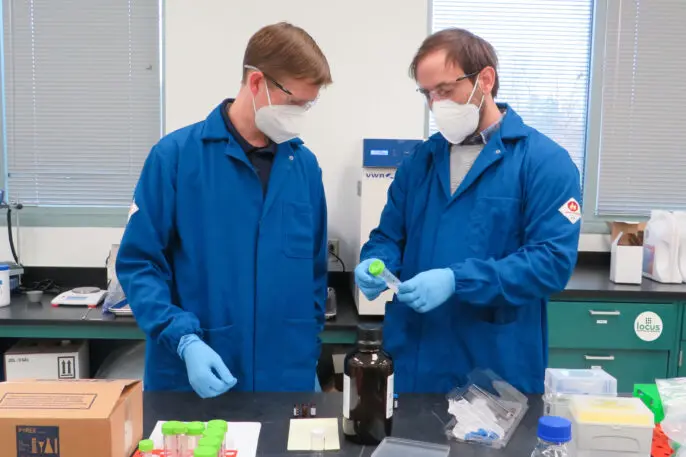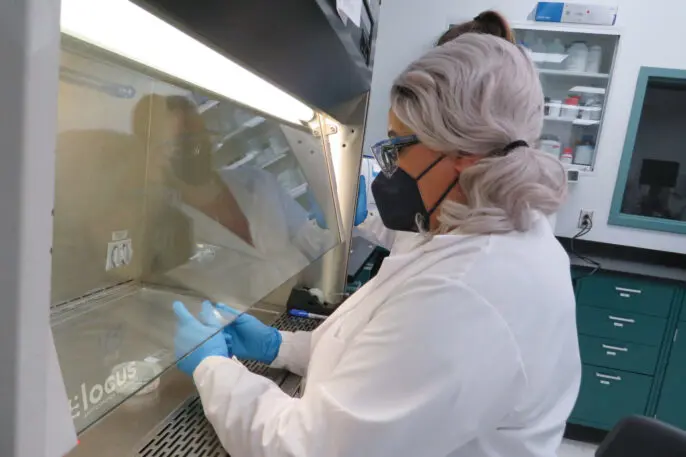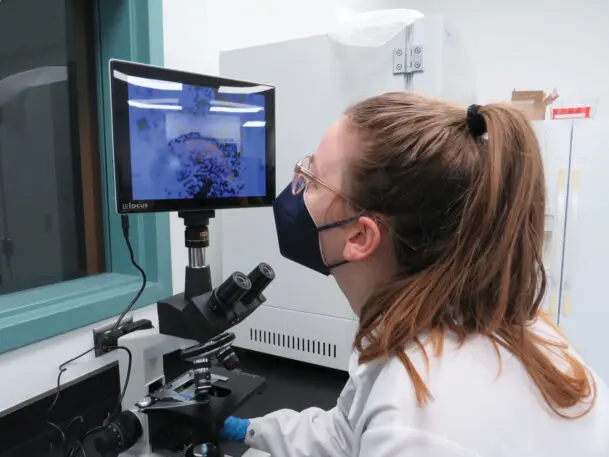Palm oil is ubiquitous—it makes ice cream and oat milk creamier and shampoo foamy, holds the color in lipstick, makes ramen noodles cook evenly, and has uses in hundreds of other products. (It often doesn’t show up on labels as palm oil but as one of dozens of derivatives, like sodium lauryl sulfate.) The world now uses more than 70 million metric tons of it every year.
That’s a problem, since palm oil plantations are driving deforestation and biodiversity loss in countries like Indonesia, and slashing and burning tropical forests to make way for palm trees is a huge source of greenhouse gas emissions. Efforts to source more “sustainable” palm oil still haven’t stopped deforestation. But synthetic versions of palm oil could theoretically replace it.

When it’s added to something like shampoo, the product helps wet hair get cleaned, pulls away oil and grease so it can be rinsed away, and adds foam. “People love foam because it feels like it works,” says Greg Smith, vice president of sales and marketing for Locus Performance Ingredients. “Foam is really a cue.”

Because the fermentation platform is efficient and productive, it helps lower cost, and because the ingredient can often replace two or even three conventional ingredients, the total cost for brands may not increase, Smith says. Two large brands are already using the ingredient in face wash and body wash, and another is studying its use in shampoo. (Because of nondisclosure agreements, the company can’t share the brand names.)

Xylome, another company, is beginning to work with brands to test an alternative called “Yoil,” produced by yeast, that’s almost identical to palm oil. “It’s basically a drop-in replacement,” says Xylome CEO Tom Kelleher. The company is now sending 100-pound samples to brands to test in products, such as ice cream, “so they can convince themselves that it has all the right melt-in-your-mouth sensations you get from palm oil that you don’t get from other types of oils,” he says. While refined palm oil is bleached—which means that chlorinated hydrocarbons end up in the foods that use it, including baby formula—Yoil doesn’t have to be bleached. The FDA is currently evaluating the product for approval for use in food, and the company is looking for funding to scale up manufacturing. Right now, it’s more expensive than palm oil to produce. But the company is also trying to develop another oil that could be made directly from agricultural waste in corn fields; if it can work, it would be substantially cheaper.
Cost is the key for alternatives to succeed. Right now, with conventional palm oil, only a fraction is certified as grown sustainably. But even the certified palm oil on the market can’t all be sold for a premium. Perhaps because it isn’t obvious how widespread the use of palm oil is, or which products contain it, brands may not feel enough pressure to change their sources. But if alternatives to palm oil are cheaper, and perform the same, companies will adopt them at a larger scale. “The minute we’re a penny below [refined] palm, everybody would switch over,” Kelleher says.
Recognize your brand’s excellence by applying to this year’s Brands That Matter Awards before the early-rate deadline, May 3.
